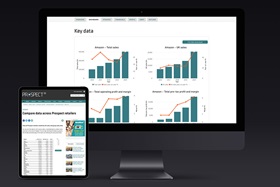Facebook has undoubtedly become the showpiece of the consequences and reputational damage that can occur when mistrust in your brand cultivates. Before the 16th March, search trends for the term ‘delete facebook’ were running at a fairly low level that had been consistent over a five year period. This noticeably spiked when news of the scandal broke; the hashtag #deletefacebook had over 400,000 tweets with the backing of public figures and companies removing their company pages from the platform. The data breach even led to the company’s founder and chief executive Mark Zuckerberg to be called to testify before the US Congress.
‘delete facebook’ – Search term interest over time
delete facebook graph
The timing of the scandal has surely been a wakeup call on the importance of data protection and the trust it builds with your customers just ahead of May 25th. And while businesses are under pressure to their customer data is in order and the processes in place promote the greatest level of data protection and privacy, it is important to note that not all users start from the same position of trust. Forrester conducted analysis throughout Europe last summer, which showed clear segments of those that are likely to have a different response to GDPR. See image below.
forrester data
And for those of us that reside in the United Kingdom, the analysis also found that British consumers are the most guarded when it comes to their data with being particularly aware of the economics of data sharing. But even though there are different starting points of trust, GDPR provides businesses with a great opportunity to alter the perceptions of fear that might exist within segments of your customers to build the necessary trust to support on-going valuable and engaging relationships that are beneficial to both parties.
It’s much harder to restore trust once it has been lost than to preserve trust before it has been lost.”
Helio Fred Garcia, Professor of Crisis Management at NYU and Columbia University in New York
With customer data being the lifeline of business operations, businesses need to ensure they are doing everything to maintain and build trust with their customers. The failure to comply is likely to have commercial consequences. Here are some tips you can undertake to ensure you maintain both trust and compliance.
- Fully audit all of the personal data you hold and understand where this sits with your organisation. An impact assessment will not only establish both source and the legitimacy of the data use but help you understand where it sits within your organisation and who has access to it.
- Review your data processing operations, technical platforms, and system. This includes ensuring how customer data is being collected and used responsibly for its intended purpose and that it is fully secured.
- Ensure you are completely upfront with your customers and provide them with end-to-end transparency about how you plan to process their data – this includes how data is acquired, stored, utilised and disposed of. Customers are more likely to share their data with you if they feel like they can trust your organisation.
- When it comes to third parties, ensure you understand their terms and conditions and that this is clearly communicated to your customers.
- Keep your customers updated on any changes to your privacy policy and terms and conditions
- Ensure customers have the ability to easily access and rectify their personal data; the right to data portability; and for the client to withdraw consent and to have their data deleted from your systems.
- Make sure you have a plan in place in the event of a data breach. The ICO has guidelines for the reporting of such incidents, but as Facebook showed if a data breach occurs it is better if your organisation is aware of it and taking the appropriate measures before being reported!
Note: these points should be reviewed on a regular basis to ensure you are remaining GDPR compliant.
To learn how our platforms can help your organisation become compliant with the new regulations and deliver transparency to your customers whilst simultaneously protecting their privacy, which will provide you with ongoing opportunities in the GDPR world, please keep in touch.




